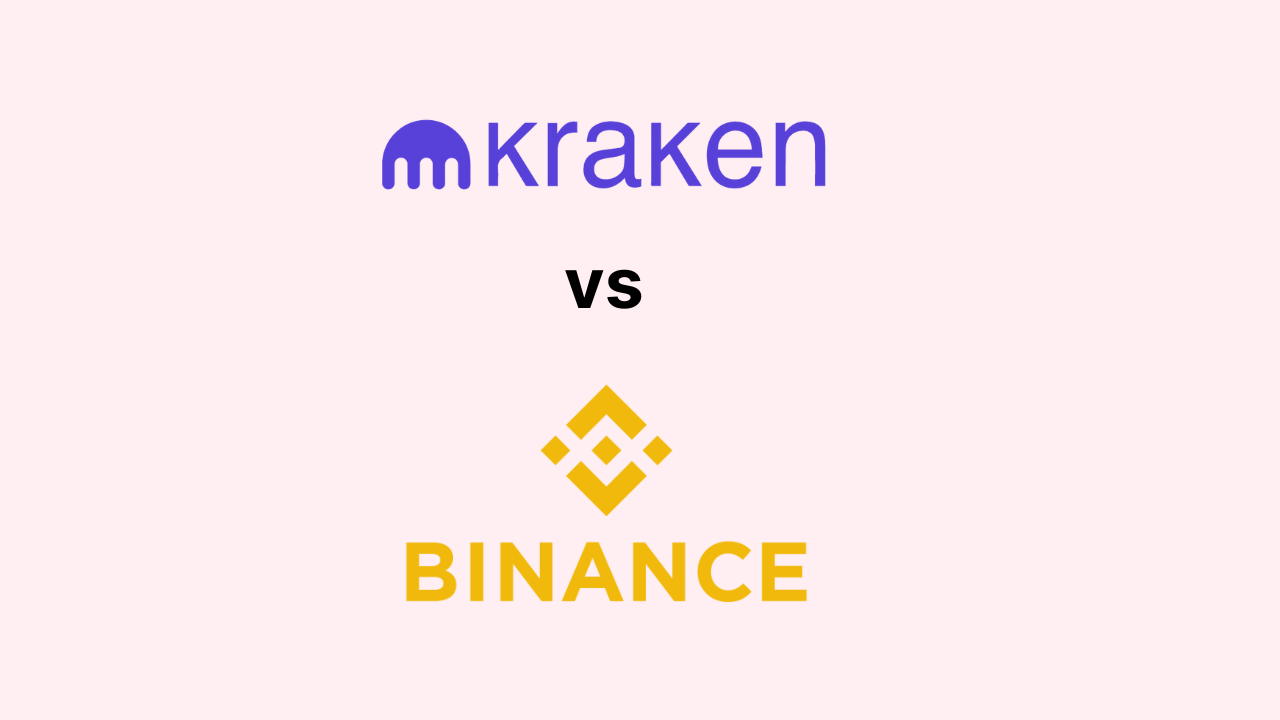Language:
Get Inspired: 200 Names for an Art Business

Art businesses require creative and catchy names that can not only reflect their brand identity but also establish a distinctive presence in the market. Choosing the perfect name for your art business can be challenging, but conducting thorough research and brainstorming sessions can lead to finding the perfect match.
Take a look at this guide for art business name inspirations and how to find your own.
Types of Art Businesses
As an aspiring artist or creative entrepreneur, starting an art business can be a daunting task without a clear plan. Developing a solid art business plan is the cornerstone of setting up a successful business in the creative industry.
There are several types of art businesses you can start, and each requires different planning and execution. One of the most popular types of art business is selling art. There are different ways to sell art, such as selling your art directly to customers, setting up an online shop or gallery, and participating in art fairs and exhibitions.
Another type of business is providing art-related services, such as art consulting, art installation, and interior design. Art-related services are in high demand, and they can provide you with a stable income stream.
If you have a passion for teaching and a love for art, starting an art school or workshop could be a great option. Art schools can offer different types of art classes, such as painting, drawing, sculpture, and pottery, which can attract a diverse group of students.
Lastly, starting a creative agency can allow you to use your art expertise to help clients with various creative needs, such as branding, graphic design, and digital media. This type of art business requires knowledge and experience in the creative industry.
In short, there are many different types of art businesses out there, and no right or wrong way of selecting a niche.
Tips for Choosing the Best Name for an Art Business
When it comes to naming an art business, there are a few key things to consider. It’s important to choose a name that accurately represents your brand and style, while also being memorable and easy to communicate. Take a look at the following tips.
Reflect Your Unique Style
Your business name should reflect the type of art you are selling. For example, if you specialize in abstract paintings, consider including the word abstract in your business name. This will help your business be more recognizable and memorable to potential customers.
Consider Your Target Audience
Your business name should resonate with your target audience. Consider what your target customers like and what type of art they prefer. If your target audience is interested in modern art, consider choosing a name that reflects modernity.
Think About the Area You Are Serving
Your business name should reflect the location you are operating in. For example, if you are in a small town, consider incorporating the name of the town or state into your business name. This will help your business to be easily identified among the locals and will also give your business a personal touch.
Choose a Name That is Memorable
A catchy and memorable business name will set you apart from the competition. Avoid using a name that is too long, difficult to spell, or pronounce. Your business name should be easy to remember and easy to search online.
Consider Your Competition
What sets you apart from other art businesses in your area, and how can you leverage those unique qualities to attract customers? This could include showcasing rare art pieces, developing an online presence, or offering unique art services.
200 Name Ideas for an Art Business
Don’t know where to start, take a look at these 200 names for art businesses to help you brainstorm.
- Artisan Lane
- Brush Strokes Gallery
- Vivid Impressions
- Studio 12
- Chromatic Creatives
- Palette Play
- Expressive Artistry
- The Artful Eye
- Color Canvas
- Mosaic Muse
- Artistry Avenue
- Creative Canvas
- The Artisan’s Den
- Abstracted Art
- Brush & Ink
- Color Fusion
- Pencil Points
- Artistic Alchemy
- Fusion Fine Arts
- Masterpiece Makers
- Artful Emporium
- Picture Perfect Gallery
- Painted Palette
- Canvas Connection
- Brushfire Artistry
- Artistic Insights
- Visionary Visions
- Imagination Station
- Artistry Works
- Brushed Beauty
- Creative Commune
- The Artisan’s Studio
- Chromatic Collections
- Artistic Endeavors
- Brush & Palette
- Artful Expressions
- Visionary Ventures
- Art House Gallery
- Artistic Inspiration
- Brushed Impressions
- Artistic Adventures
- Masterpiece Maker Studio
- The Artisan’s Touch
- The Creative Eye
- Brushstroke Boulevard
- Colorful Canvas
- The Painted Window
- Artistic Minds
- Chromatic Canvases
- Creative Concoctions
- The Artisan’s Atelier
- Artistic Expressions
- Brushed Bliss
- Visionary Ventures Art Studio
- Artistic Reflections
- The Canvas Cottage
- Creative Castings
- The Artisan’s Workshop
- Colorful Contours
- Artistic Journeys
- Brushed Beauty Studio
- Chromatic Dreams
- Artistic Innovations
- Creative Connections
- The Artisan’s Hub
- Painted Possibilities
- Visionary Ventures Art Emporium
- Artistic Medley
- Brushed Boldness
- The Artistic Abode
- Creative Concepts
- Artistic Odyssey
- Brushed Elegance
- Chromatic Visions
- The Artistic Outpost
- Artistic Rhythms
- Brushed Expressions
- Visionary Ventures Art Gallery
- The Artistic Nexus
- Creative Caress
- Artistic Quests
- Brushed Serenity
- Chromatic Charisma
- The Artistic Way
- Artistic Revolutions
- Brushed Impressions Gallery
- Visionary Ventures Art Showcase
- The Artistic Fusion
- Creative Cognition
- Artistic Legacies
- Brushed Whimsy
- Chromatic Frenzy
- The Artistic Haven
- Artistic Visions and Voices
- Brushed Color
- Visionary Ventures Artistic Enclave
- The Artistic Universe
- Creative Curations
- Artistic Journeys Gallery
- Brushed Dreams Art Studio
- Artful Creations
- Sculpture Haven
- Creative Impressions
- Masterpiece Makers
- Aesthetic Artistry
- Artistic Endeavors
- Shape Shifters
- Sculpture Sanctuary
- Inspired Creations
- Artisan Expressions
- The Sculptor’s Studio
- The Artful Eye
- Artistic Bliss
- Sculpture Fusion
- Canvas & Clay
- Creative Contours
- Serene Sculptures
- Artistic Marvels
- Clay Creations
- The Sculpture Workshop
- Artful Expressions
- The Sculptor’s Touch
- Artful Additions
- Artistic Ambitions
- The Sculptor’s Haven
- Artistic Endeavors
- Sculpture Expressions
- The Artful Touch
- Sculpture Sphere
- Artistic Visions
- The Sculpture Co.
- Inspired Sculptures
- Artistic Inspirations
- Sculpture Sensei
- Artistic Merit
- The Sculpture Atelier
- Creative Clayworks
- Artful Aspirations
- Sculpture Collective
- Artistic Impulses
- The Sculpture House
- Artistic Impressions
- Sculpture Nation
- Artful Odyssey
- Sculpture Quest
- Creative Constructions
- Artistic Palette
- Sculpture Rhythms
- The Artful Ascent
- The Sculpture Society
- Artistic Perceptions
- Sculpture Serenity
- Creative Carvings
- Artistic Serenity
- Sculpture Sensations
- The Artful Circle
- Artistic Blissfulness
- Sculpture Synergy
- Artful Expressions
- Sculpture Synthesis
- Creative Chaos
- Artistic Euphoria
- The Sculpture Arena
- Artful Fusion
- Sculpture Fusion
- Artistic Mosaic
- The Sculpture Garden
- Creative Compositions
- Artistic Artifacts
- Sculpture Dynamics
- Artistic Terrain
- Sculpture Expressions
- The Artistic Armory
- Artistic Heights
- Sculpture Horizons
- Creative Catalysts
- Artistic Aspirations
- Sculpture Innovations
- The Artistic Journey
- Sculpture Kingdom
- Artistic Metamorphosis
- Sculpture Masterminds
- Artistic Overture
- Sculpture Odyssey
- Creative Clay
- Artistic Phoenix
- Sculpture Pioneers
- Artistic Quests
- The Sculpture Sanctuary
- Artistic Sojourns
- Sculpture Symmetry
- The Artistic Spectrum
- Artistic Treasures
- Sculpture Synchronicity
- Creative Cognition
- Artistic Utopia
- Sculpture Universe
- The Artistic Voyage
- Artistic Wonders
- Sculpture Zenith
*Note: The names listed above are intended for inspiration only and may be in use and subject to change in availability.
How to Start an Art Business
Starting an art company can be both an exciting and profitable venture. Let’s take a look at what you can expect in the process.
Step 1: Develop a Business Plan
You’ll want to specify and hone in on your niche. It may be worthwhile to consider if there’s a need in the market and who your competitors are.
Another important consideration is determining your target audience. Are you catering to high-end collectors, aspiring art enthusiasts, or galleries looking to showcase new artists? Understanding your audience will help you determine pricing and marketing strategies.
Step 2: Create a Brand Identity
Art businesses have a unique challenge when it comes to branding. On one hand, you want to showcase your creativity and individuality to stand out in a crowded market. On the other hand, you also need to convey professionalism and credibility to potential customers and investors. Creating a strong brand identity is the key to balancing these two competing demands.
It helps to define your key selling points, hone in on your specific style, and stay consistent with marketing messaging.
Step 3: Source Materials & Equipment
Art businesses rely heavily on high-quality source materials and equipment to produce their masterpieces. From painting supplies to sculpture tools and printing presses, having access to the right materials is essential in bringing an artist’s vision to life. This means that art businesses must prioritize sourcing from reputable manufacturers that provide materials that are durable, reliable, and of the highest quality.
Step 4: Secure Financing (If You Need It)
Not every art business may need financing. If you’re a graphic designer or an independent artist, you may be able to grow without outside investments. However, other businesses may need some help.
Whether it’s a start-up art gallery, a boutique selling art and craft materials, or an arts and crafts workshop, securing financing can be essential to launching and expanding an art business. Consider working with banks, networking with investors, or even launching a crowdfunding campaign.
Step 5: Choose Your Business Structure
Choosing the right business structure is a critical decision that every entrepreneur must undertake. The type of entity you select for your business will determine the legal framework and tax obligations associated with your operations. Let’s explore how different business structures compare.
Sole Proprietorship
Sole proprietorships are the simplest business structures available and are often appropriate for small businesses operated by a single person. As a sole proprietor, you have complete control over your company’s operations and finances. Sole proprietorships are easy to set up and maintain, and the tax filing process is relatively hassle-free. However, there is no legal separation between the owner and the business, which means that the proprietor’s assets are at risk in case of lawsuits or debts.
Partnership
Partnerships allow multiple people to join forces and start a business together. Partnerships can be either general partnerships, where all partners share equally in profits and losses, or limited partnerships, where one or more partners have limited liability. Partnerships are relatively easy to start and flexible in terms of management. However, disagreements between partners can be detrimental to the business, and each partner is responsible for the actions of the others.
Limited Liability Company (LLC)
LLCs are a popular choice for many small businesses as they offer the liability protection of a corporation while maintaining the simplicity and tax benefits of a partnership. An LLC has a flexible management structure and offers protection for personal assets in case of legal claims or debts. However, LLCs require more paperwork and maintenance than sole proprietorships or partnerships, and individual members must pay self-employment taxes.
Corporation
Corporations are separate legal entities that can raise capital through the issuance of stocks. Corporations offer limited liability protection for shareholders, and the business can exist beyond its original founders. However, corporations require more significant ongoing administrative efforts, have higher taxes, and are subject to stricter governance requirements.
Step 6: Open a Business Bank Account
Not only does having a separate bank account for your business transactions make accounting and tax preparation much easier, but it also provides a sense of professionalism and legitimacy to your business. With a business bank account, you can easily separate personal and business finances, which will undoubtedly help you stay organized and up-to-date with your finances.
Launching Your Art Business
When it comes to launching your art business, choosing the right name is key. Take your time, do your research, and choose a name that accurately reflects your brand and will help you stand out in a crowded market.
Once you’re ready to officially launch your art business, take the time to explore doola’s resources, from entity formation to business banking.
FAQ
What should I consider when choosing a name for my art business?
You should consider a name that is unique, and memorable and represents your brand and artistic style.
Should I incorporate my own name into the business name?
It depends on your personal preference and if you plan to keep the business personalized or create a brand. Using your own name can create a more personal touch to the business, while not using it can allow for more flexibility in branding.
How do I make sure my chosen name isn’t already trademarked or used by another business?
You can conduct a trademark search through the United States Patent and Trademark Office (USPTO) website to check if the name is already registered. You can also search online for any other businesses or creative individuals who may be using the name.
Should I get feedback from others before finalizing my business name?
Yes, it’s always a good idea to get feedback from people in your target audience, as well as friends and family members who can provide constructive criticism.
Keep reading
Start your dream business and keep it 100% compliant
Turn your dream idea into your dream business.















